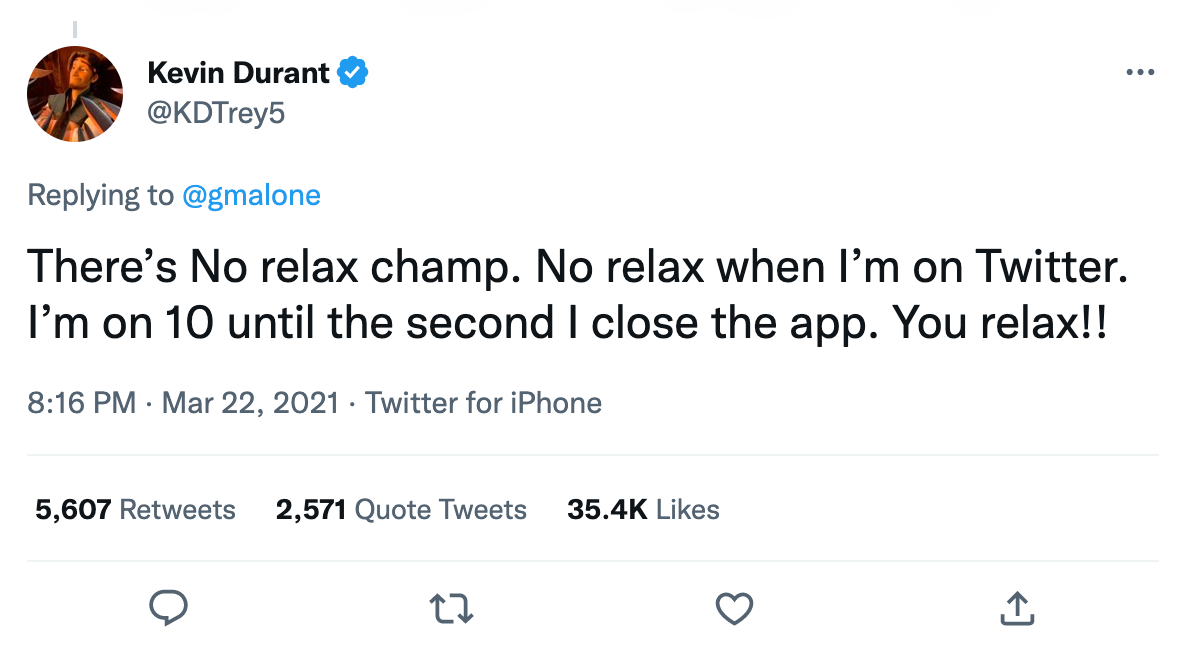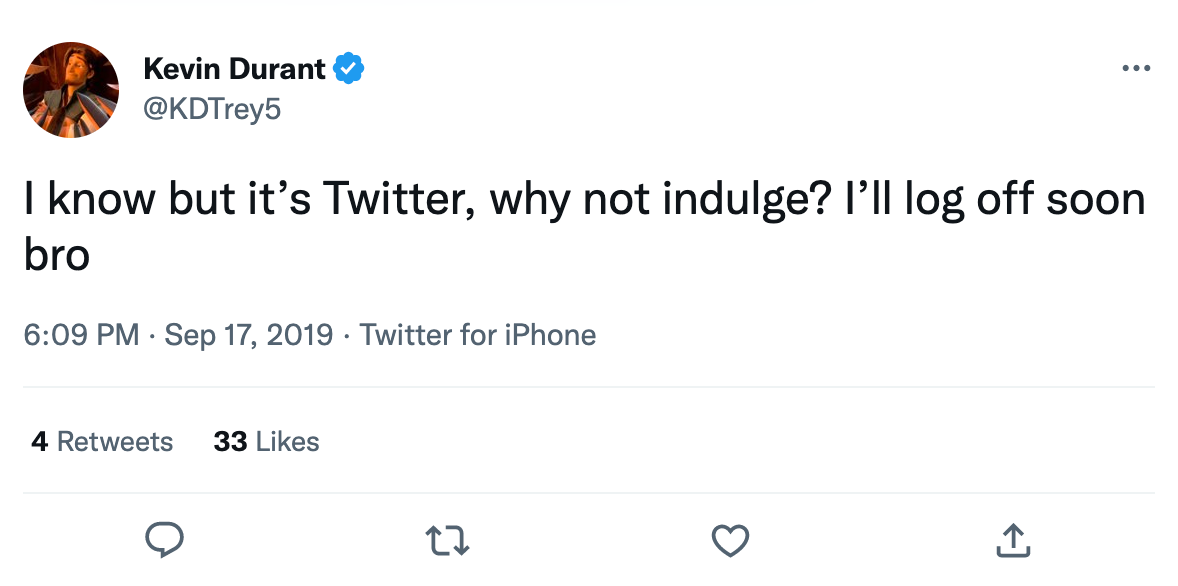There is no After Twitter
I'm on 10 until the second I close the app. You relax!!
Well Elon Musk bought Twitter, which is bad, and now bad things are happening to Twitter, including advertisers pulling money, essential staff being fired or leaving on their own accord, and key functionality components failing in real time. There appears to be a non-trivial chance that Twitter, like every Musk project before it, will crash and burn as a sort of useless sacrifice to speculation and money-laundering (Twitter’s potential failure being Musk’s most excusable, as it will not to my knowledge actually mow down any pedestrians or burn users to death). I learned these things on Twitter.
And so people are acting accordingly. You see backup plans set in place: Linktrees, Mastodon, Substacks (I started this before Twitter’s demise, but, still – I snapped, my mind, and so on). You see roundups, threads, quote-Tweet-baits, trips down memory lane of the most deranged things you ever saw on that website, reminders of the meaningless jokelets that have structured your mind’s terrain over the past however many years, Tweets that you remember despite not being able to recall basic details or moments of your childhood. You see, in a truly embarrassing touch, histrionic and hysterical goodbyes.
People are preparing to say goodbye to Twitter, in other words, which strikes me as hollow and foolish for its obvious impossibility. Twitter-as-site’s death seems logically likely which somehow has convinced people of its inevitability, a presumption that ignores the primary lesson of the Twitter era: that the stupidest outcome prevails, that you do not get to escape the ennui of your existence just because you recognize its senselessness. It’s a lesson that I’ve primarily used my own attachment to the moribund Brooklyn Nets to illustrate, but you know the feeling too. It’s knowing that Donald Trump and Joe Biden will almost certainly run this thing back in 2024, for instance.
But let’s say the website does, for all intents and purposes, disappear. Is there anybody who believes that it will leave our souls? Twitter is not Vine, a repository for transcendent jokes and creativity that can more or less eventually be relegated to the realm of “remember when?” It is not Facebook, a social media space that slowly and then all-at-once turned into a place where your uncles went insane. Twitter was, and will remain, a paradigmatic shift in human interaction and perception. It opened a door that cannot be closed.
Lost in the retrospectives on Twitter’s style – its jargon, its comedic sensibilities, its democratization of the written word, its destabilization of entrenched media forces, the presidency it created and then sustained – is the way that Twitter makes you feel. It was the social media platform of the information age, stretching the human capacity for receiving and processing information past the point of any evolutionary capacity and then, after shocking our brains senseless, turning the way we processed that information into a cruel game. Twitter’s affect was unmistakably anxious and depressed because the human brain could not process that volume and intensity of information through anything other than paralysis, a hard reset. Then, in the wake of frying our brains into oblivion, Twitter offered us its own rewards system and logic. You can become one of the main characters, it told us. You do not have to be a passive spectator in this onslaught of data – you can become data yourself. You cannot swim against the stream of stimulation, but you can make it work for you.
It was not enough for Twitter to shatter our ability to process information; like any addictive endeavor, it turned what we do into a game. On Twitter, you are always one post away. It’s the next take, the next joke, the next reply, the next dunk that will vault you out of your receivership and into autonomy. If you share your innermost thoughts, hearts will appear. Not unlike how YouTube’s algorithm infamously pushes its viewers deeper into fringes from which they cannot escape, Twitter’s algorithm rewarded you for having the right take. Never mind that the correct opinion morphed at warp speed, never mind that what you were supposed to care about and who you were supposed to hate shifted at a breakneck pace. Just keep it up, Twitter said, and soon this will mean something.
And so just how America perfected the car crash, television perfected the reality show, and Instagram perfected the thirst trap, Twitter perfected the dog pile. Twitter kept us addicted by allowing us to simulate community by building our brands on nothing more than what we were not, by defining ourselves in opposition to that which we opposed even if we did not know of our enemy’s existence a week ago. Regardless of whether or not the people, brands, or ideologies on the receiving end of Twitter’s ire each day deserved their humiliation – so often they did, so often Twitter was a sort of democratic correction – there is something impossibly foreboding about the joyousness of Twitter’s schadenfreude. Twitter’s main characters, its sacrificial lambs, were what kept you coming back each day. How many times over the past year did you ask someone if they “saw the Tweet?” There’s something beautiful, if Twitter is in fact ending, that it goes down in this way: all of Twitter powerlessly and diligently dunking on its new owner as the site itself sputters into uselessness.
Twitter opened the floodgates, then, exposing us to waves of information so destructively overwhelming that we could process them only through rituals of performance: through identifying and condemning wrongness, through floating in refuge with the Correct, through posting until the day that you could escape it all with a podcast appearance, a book deal, or a writer’s credit. With or without Twitter, this torrent of information will continue to bombard us. As long as it does, there will be no logging off – before long, there might not even be any grass left to touch.







